The First International Conference on Intelligent Medicine was Successfully Held in Shanghai
Global Experts Explore the Integration and Innovation of Medical Intelligence
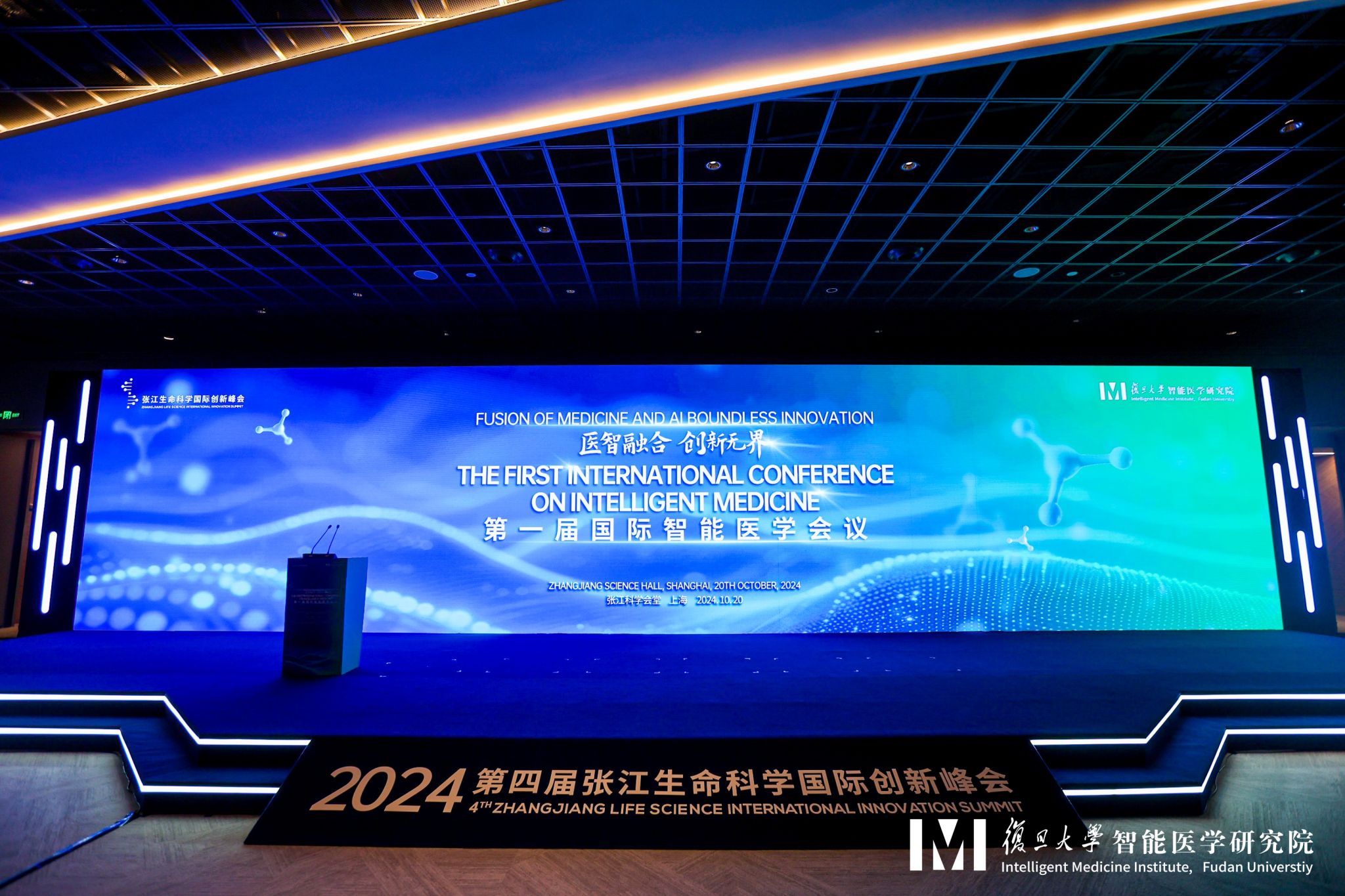
On October 20, 2024, the First International Conference on Intelligent Medicine, jointly organized by the Intelligent Medicine Institute, Fudan University and Zhang Jiang Life Science International Innovation Summit, was grandly held in Shanghai. The theme of the conference was “Fusion of Medicine and AI Boundless Innovation”. The conference was supported by our strategic partner Takeda China, and our excellent partners MGI Tech Co., Ltd and Shanghai Lishan Biopharmaceutical Co., Ltd. The conference gathered world-renowned experts, scholars and industry representatives from Germany, the United States, the United Kingdom and China, totaling more than 300 global professionals and researchers attracted in Shanghai. The conference shared the latest research results and development trends around the cutting-edge areas of medical large model and clinical applications, intelligent microorganisms and human health, value mining and application of healthcare big data, intelligent medical imaging and intelligent pharmacy, and jointly discussed the communication and cooperation in the field of global intelligent medicine.
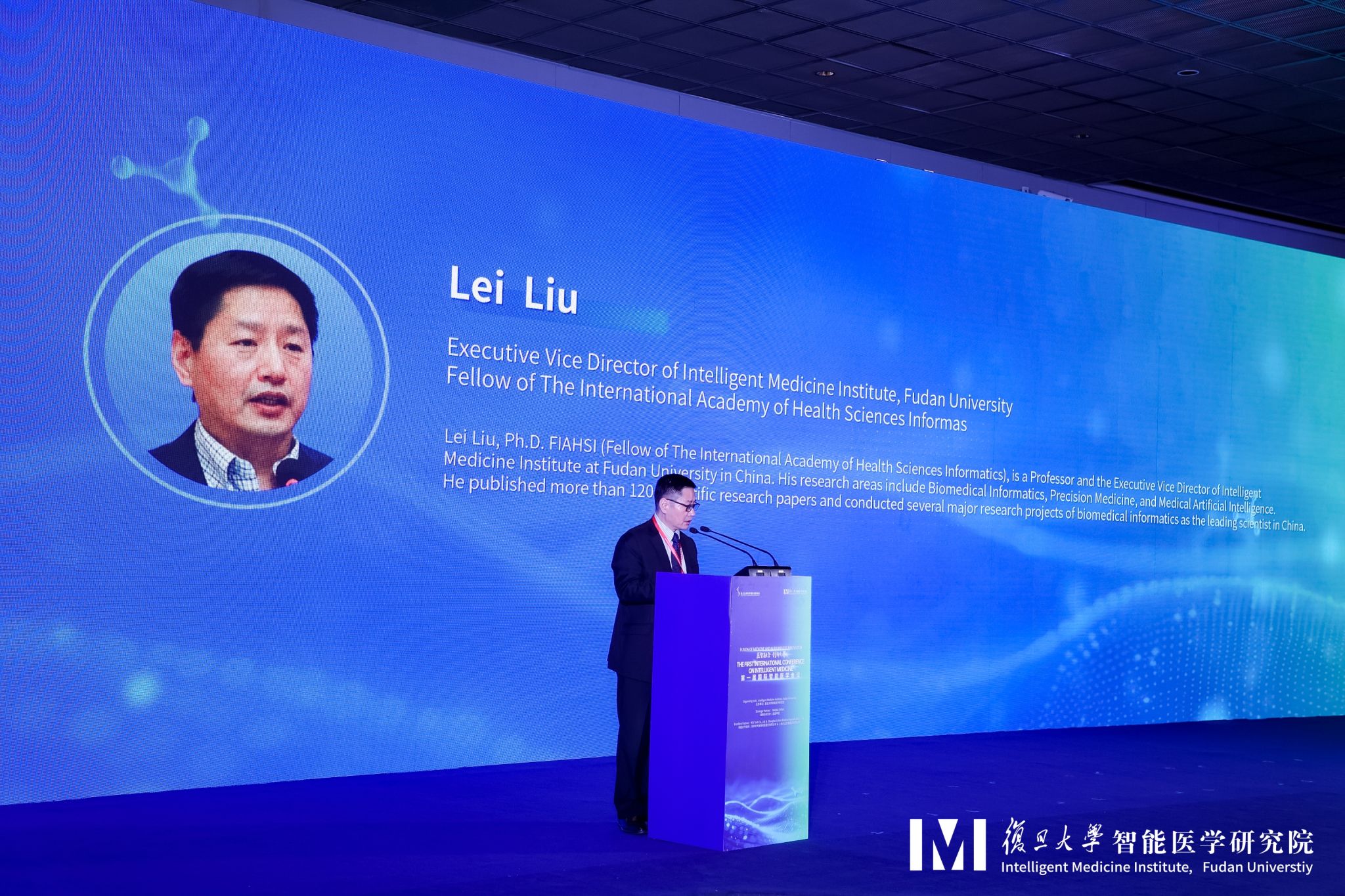
Prof. Lei Liu, the executive vice director of Intelligent Medicine Institute, Fudan University, hosted the opening ceremony of the conference. Prof. Tongyu Zhu, the vice president of Shanghai Medical College and the director of Intelligent Medicine Institute, Fudan University, and Prof. Roland Eils, the academician of the German National Academy of Sciences, attended the opening ceremony and delivered welcoming speeches.
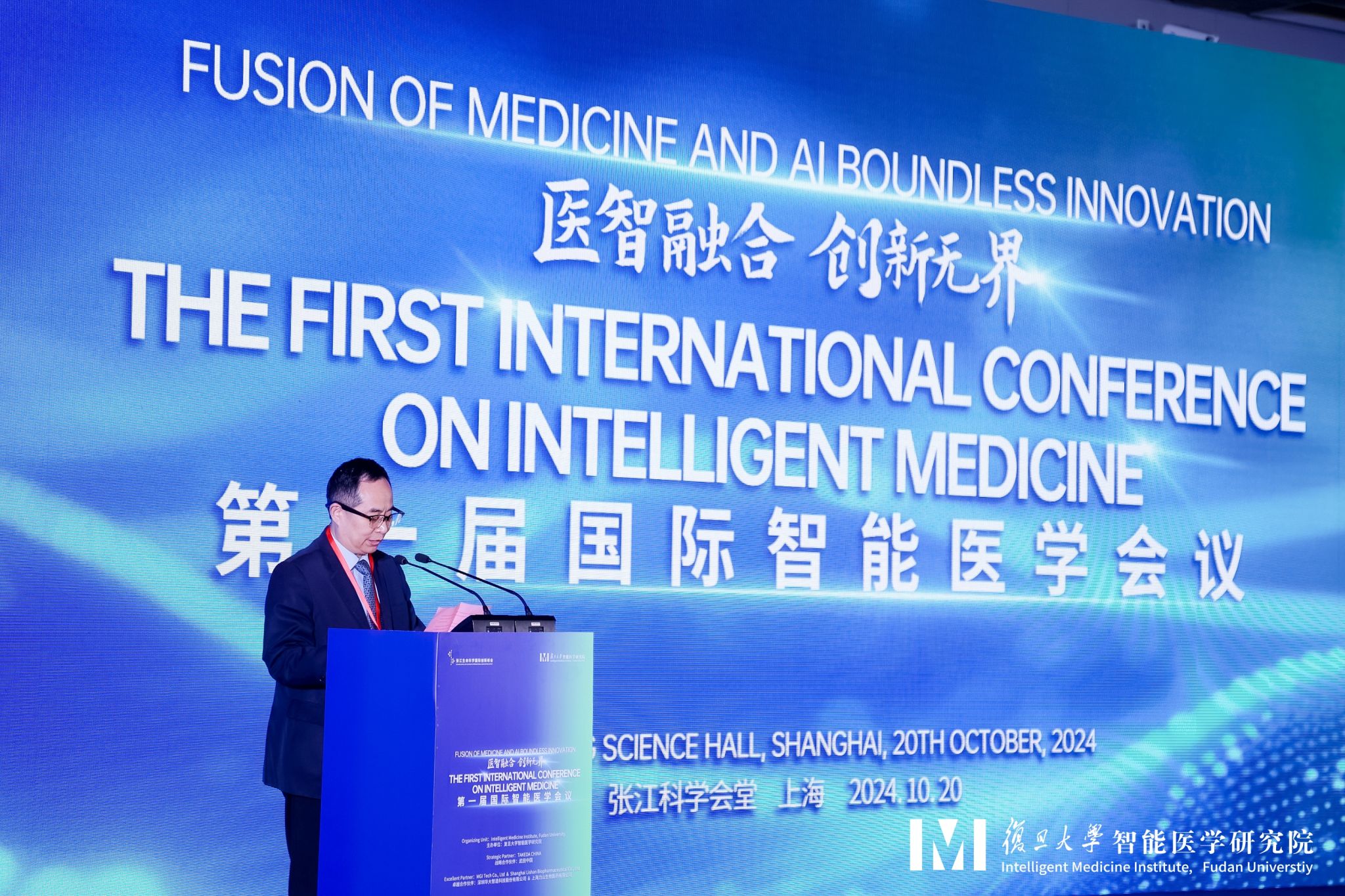
Prof. Tongyu Zhu, the vice president of Shanghai Medical College, Fudan University and the director of Intelligent Medicine Institute, Fudan University, warmly congratulated the success of the First International Conference on Intelligent Medicine in his speech. Prof. Zhu said that the Intelligent Medicine Institute, Fudan University is committed to building a center of international intelligent medicine research and providing high-quality services for medical research. He looked forward to continuing to strengthen the construction of the Intelligent Medicine Institute, Fudan University in the field of intelligent medicine through international cooperation, promoting the in-depth medical application of AI, and helping the development of precision medicine and personalized health management.
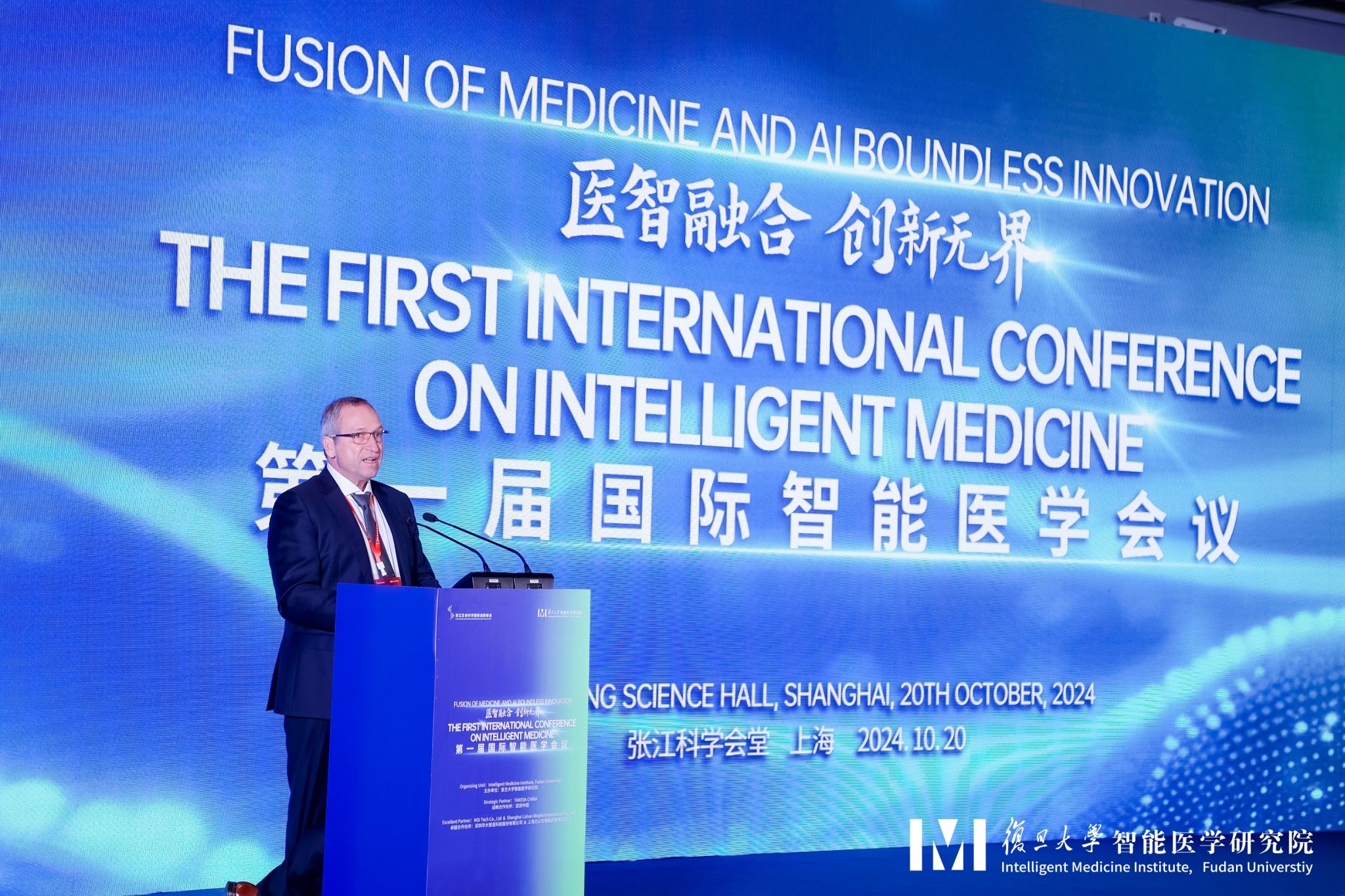
Prof. Roland Eils, the member of the German National Academy of Sciences, expressed his congratulations on the success of the First International Conference on Intelligent Medicine. He expressed his gratitude for the guests for coming and the experts for sharing their knowledge. He believed that through this opportunity, experts from all over the world will share their achievements in the fields of AI, Healthcare Big Data and Intelligent Microbiology, and promote the progress of research and cooperation in the field of Intelligent Medicine.
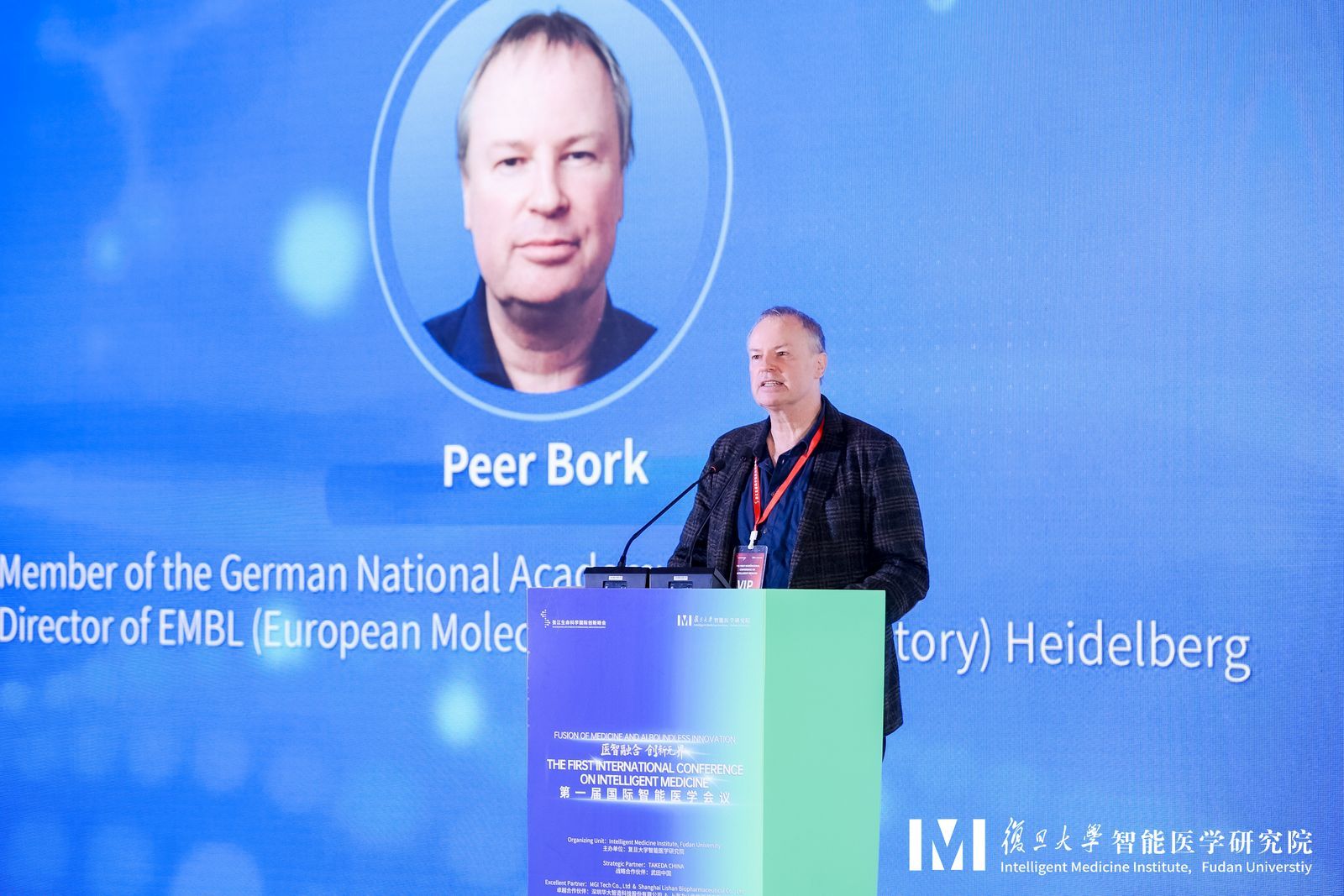
Prof. Peer Bork, the director of EMBL (European Molecular Biology laboratory) Heidelberg, gave a fascinating opening lecture on “Gut microbiome analysis for human health and wellbeing”. He focused on the potential of the gut microbiome in diagnosis and therapy, emphasizing the importance of non-invasive diagnosis through fecal microbial markers. He presented algorithms and data models for analyzing gut microbes in multinational cohort studies and showed results of the application of microbiome markers in different diseases, such as colorectal cancer and antibiotic resistance. Finally, he discusses how these studies can provide new perspectives for individualized medicine and global health, especially with potential applications in the areas of antibiotic resistance transmission and early detection of disease.
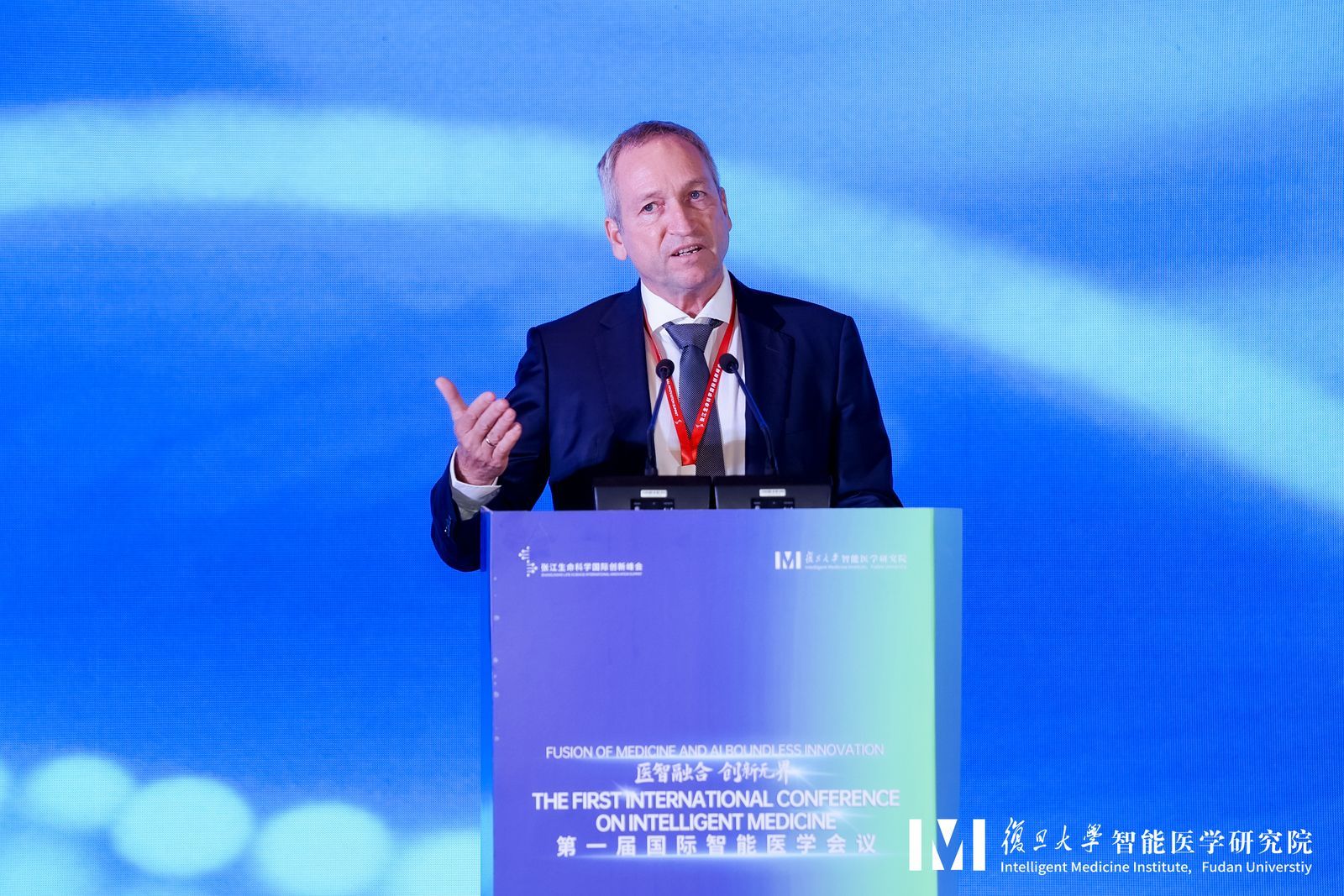
Prof. Roland Eils, the member of the German National Academy of Sciences, presented the report “AI in health: opportunities for disease prevention and therapy”. He focused on the potential of deep learning for processing and analyzing health data, with a special emphasis on the use of large-scale language models in real patient data. He described the use of multimodal data in disease risk prediction, including genomics, health records, and retinal fundus photographs, and demonstrated the results of the application of these data models in predicting multi-disease outcomes such as cardiovascular and metabolic diseases. Finally, he discusses how these studies can provide new perspectives on personalized medicine and global health, particularly with potential applications in the areas of early disease detection and prevention, emphasizing the broad applicability of deep learning and the importance of data in health and life sciences.
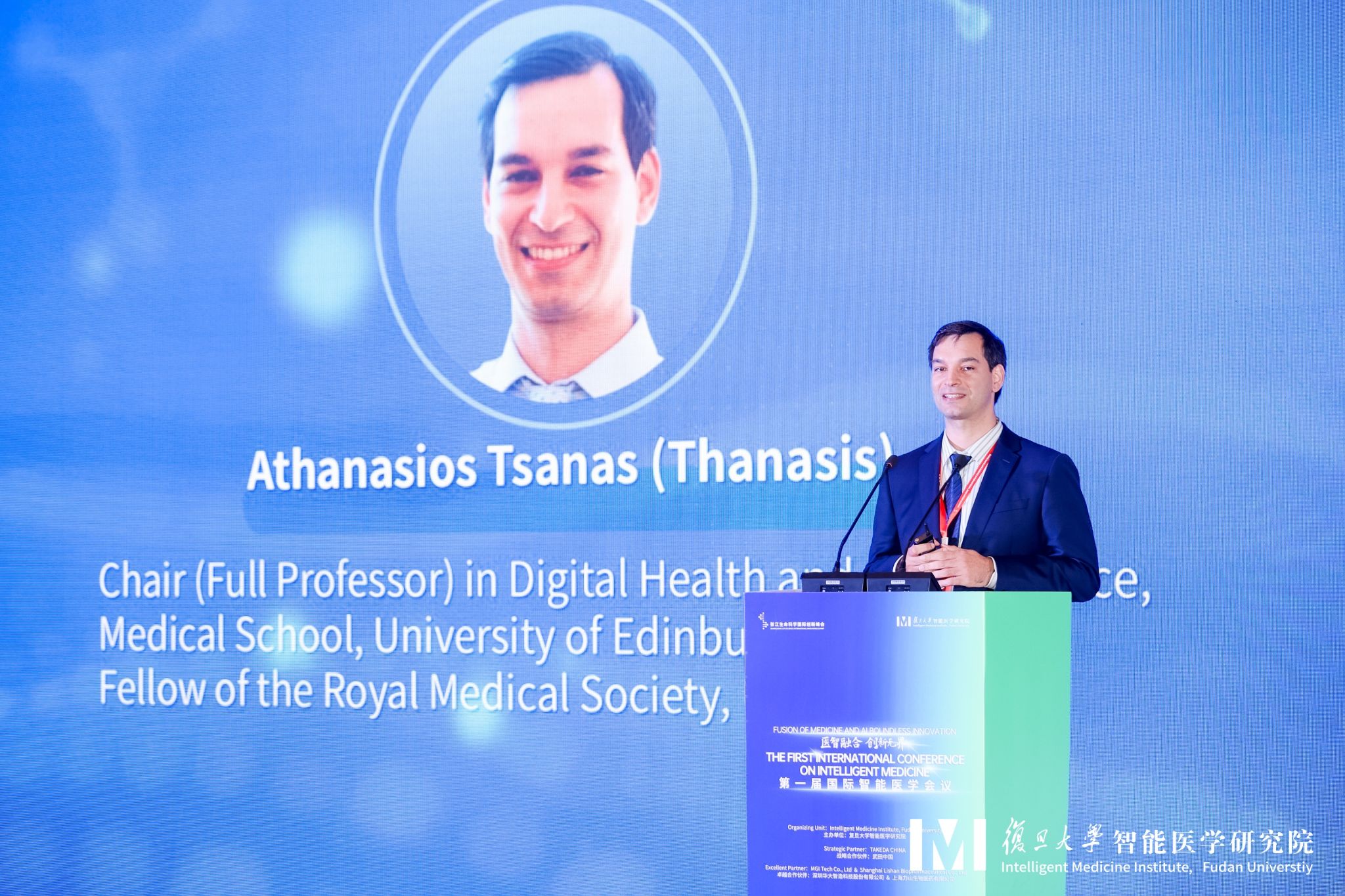
Prof. Athanasios Tsanas, the chair in Digital Health and Data Science, Medical School, University of Edinburgh, explored the relationship between sleep spindle waves and sleep quality from a digital health and data science perspective with his report “Hypnogram-free, single lead automated EEG analysis for accuracy”. Focusing on the importance of accuracy of sleep spindle wave detection for sleep staging, he emphasized the importance of continuous wavelet transform and local weighted smoothing in automatic sleep spindle wave detection. He presented algorithms for sleep spindle wave detection using single-conductance EEG signals and showed the results of modeling for predicting the state and type of sleep spindle waves in different databases, and discussed how these techniques can be applied to the field of diagnosis and treatment of sleep disorders.
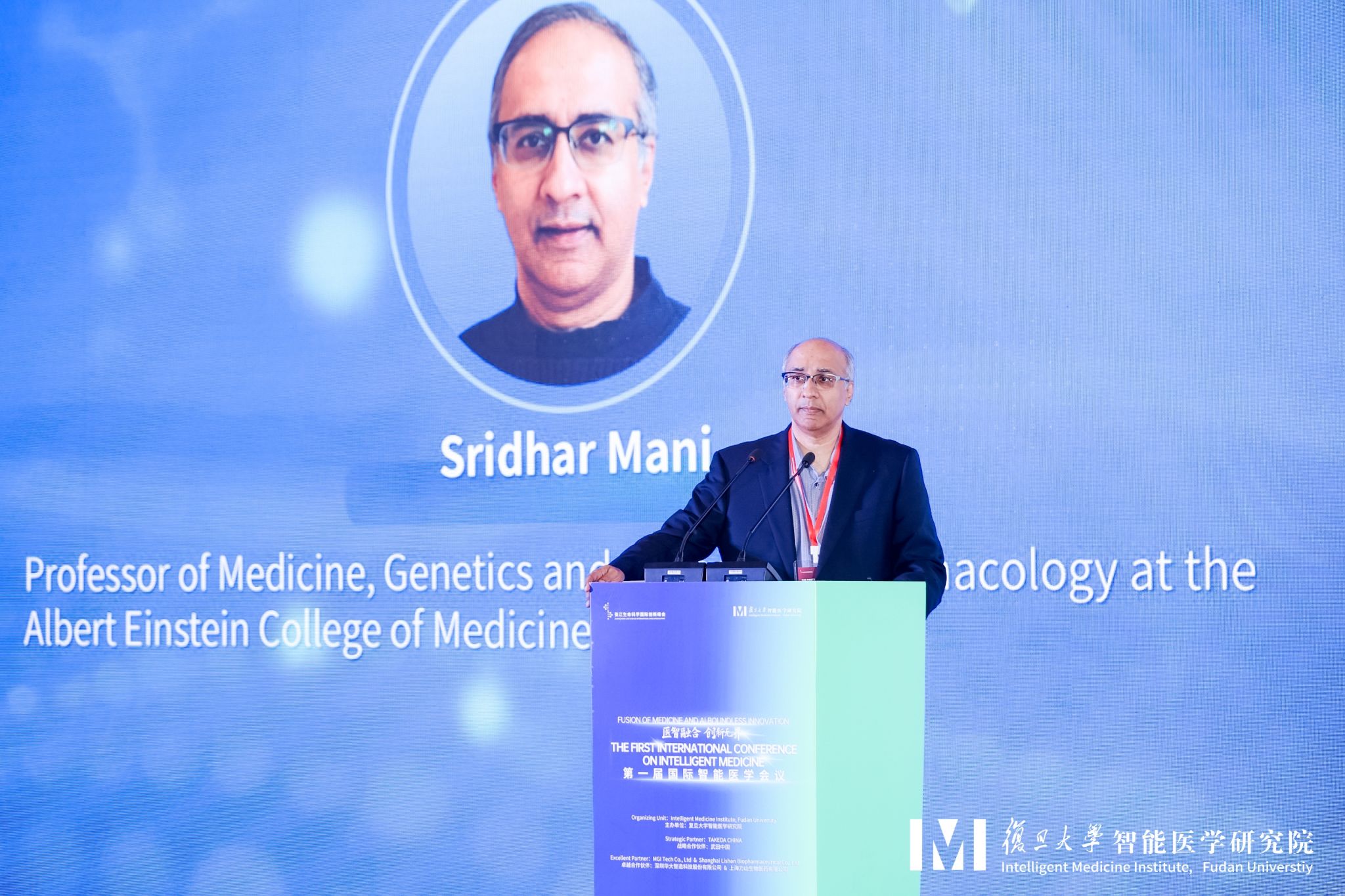
Prof. Sridhar Mani, the Professor of Medicine, Genetics and Molecular Pharmacology at the Albert Einstein College of Medicine, presented “Microbiome, human health, and big data”. He discussed the relationship between microorganisms and human health from the perspectives of the microbiome and big data, with a focus on the impact of microbiomes on drug efficacy, disease treatment, and emphasized the importance of big data analysis in microbiome research. He introduced the application of machine learning in multi-omics characterization of the microbiome and showed the results of models for predicting disease states and subtypes.
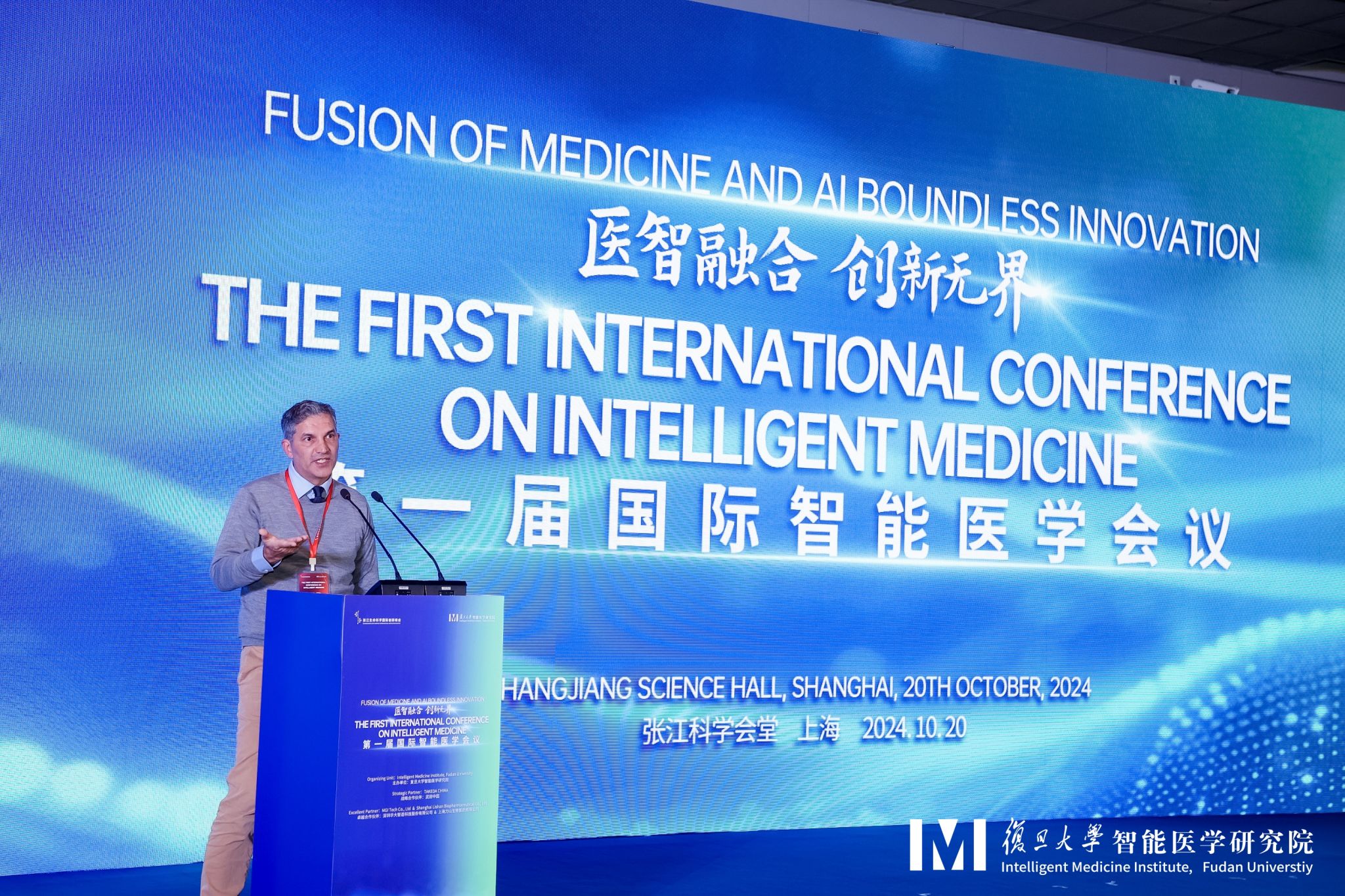
Prof. Christian Conrad, the professor of intelligent imaging at the Charity University medicine Berlin, described the potential of spatial genomics technologies in the diagnosis and treatment of disease in his report “Single cell sequencing and spatial omics niche detection,” emphasizing the importance of spatially resolved gene expression analysis for disease microenvironmental studies. He presented algorithms and data models for analyzing cellular interactions and microenvironmental changes in several research areas, such as COVID-19, idiopathic pulmonary fibrosis, and bile duct atresia, and demonstrated the results of the application of these technologies in understanding disease mechanisms and developing new therapies.
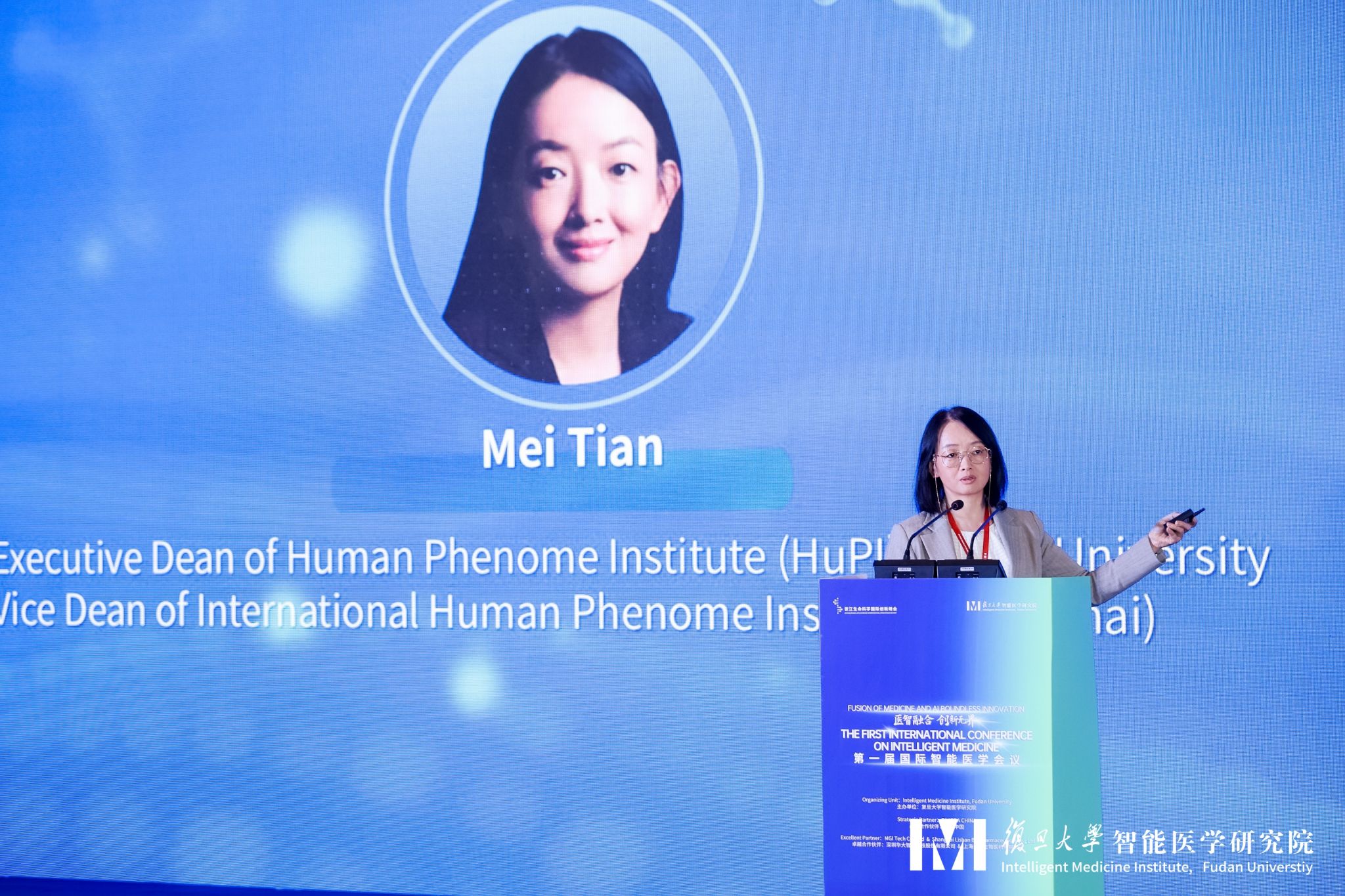
Prof. Mei Tian, the executive dean of Human Phenome Institute, Fudan University, presented “Nuclear Medicine and Molecular Imaging”. She focused on the revolutionary potential of molecular imaging technologies in medical diagnosis and treatment, with special emphasis on the importance of positron emission tomography in non-invasive diagnosis. She presented algorithms and data models for analyzing molecular targets and biochemical processes in several research areas, such as oncology, neurology, and phenomics, and demonstrated the results of the application of molecular imaging markers in different diseases, such as cancer and neurodegenerative diseases.
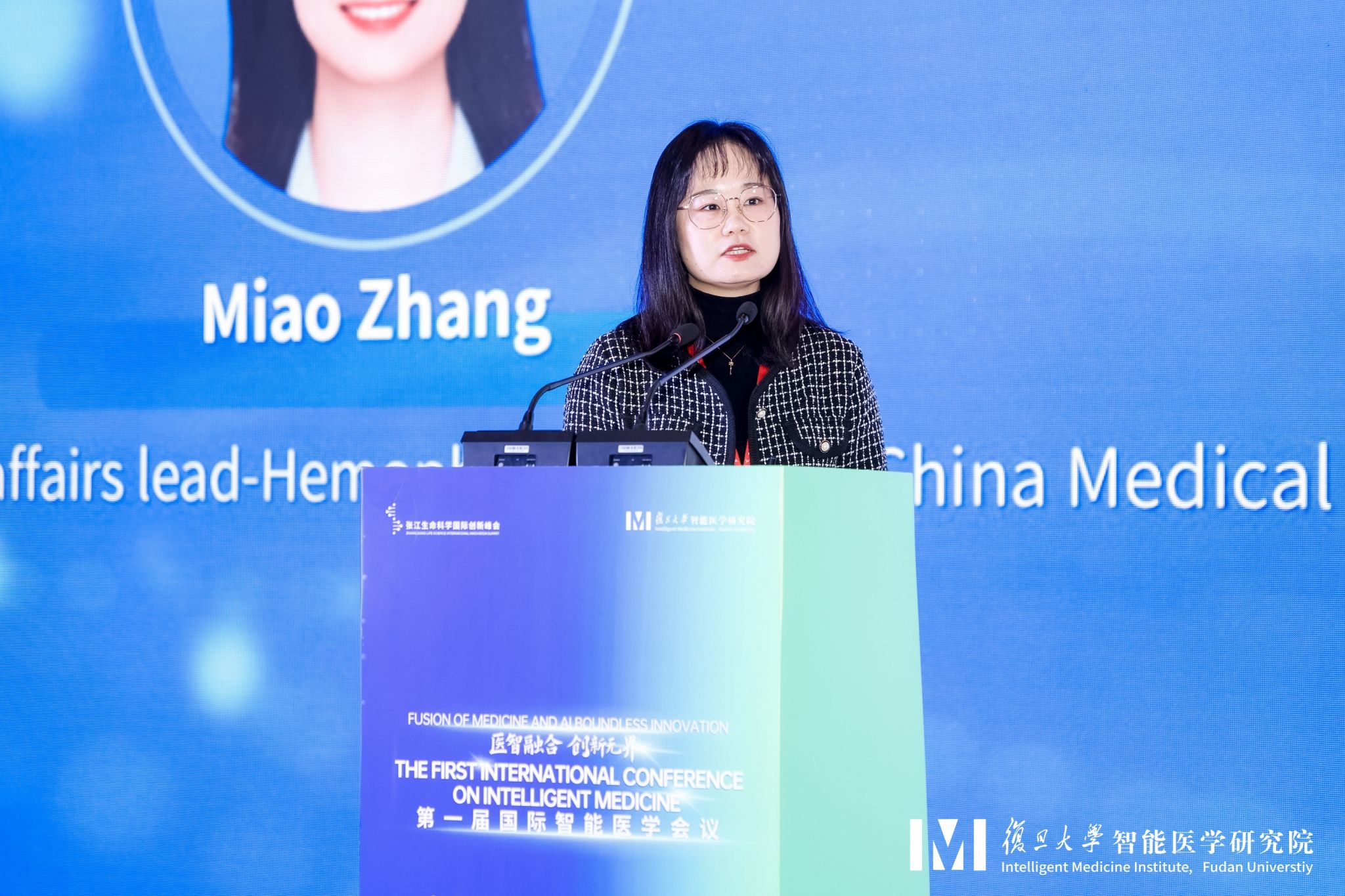
Zhang Miao, the medical affairs lead-Hemophilia of Takeda China Medical, discussed the relationship between rare diseases and individualized treatment from the perspective of hemophilia personalized treatment in her report “PK empowers the new era of personalized treatment for hemophilia”, focusing on the impact of personalized prophylaxis on the outcomes of hemophiliacs and emphasizing the importance of the myPKFiT tool in personalized care. She also introduced the application of pharmacokinetics in the analysis of multifactorial factors in hemophilia, and how these techniques can be applied to the field of precision preventive therapy and personalized care for hemophiliacs is discussed.
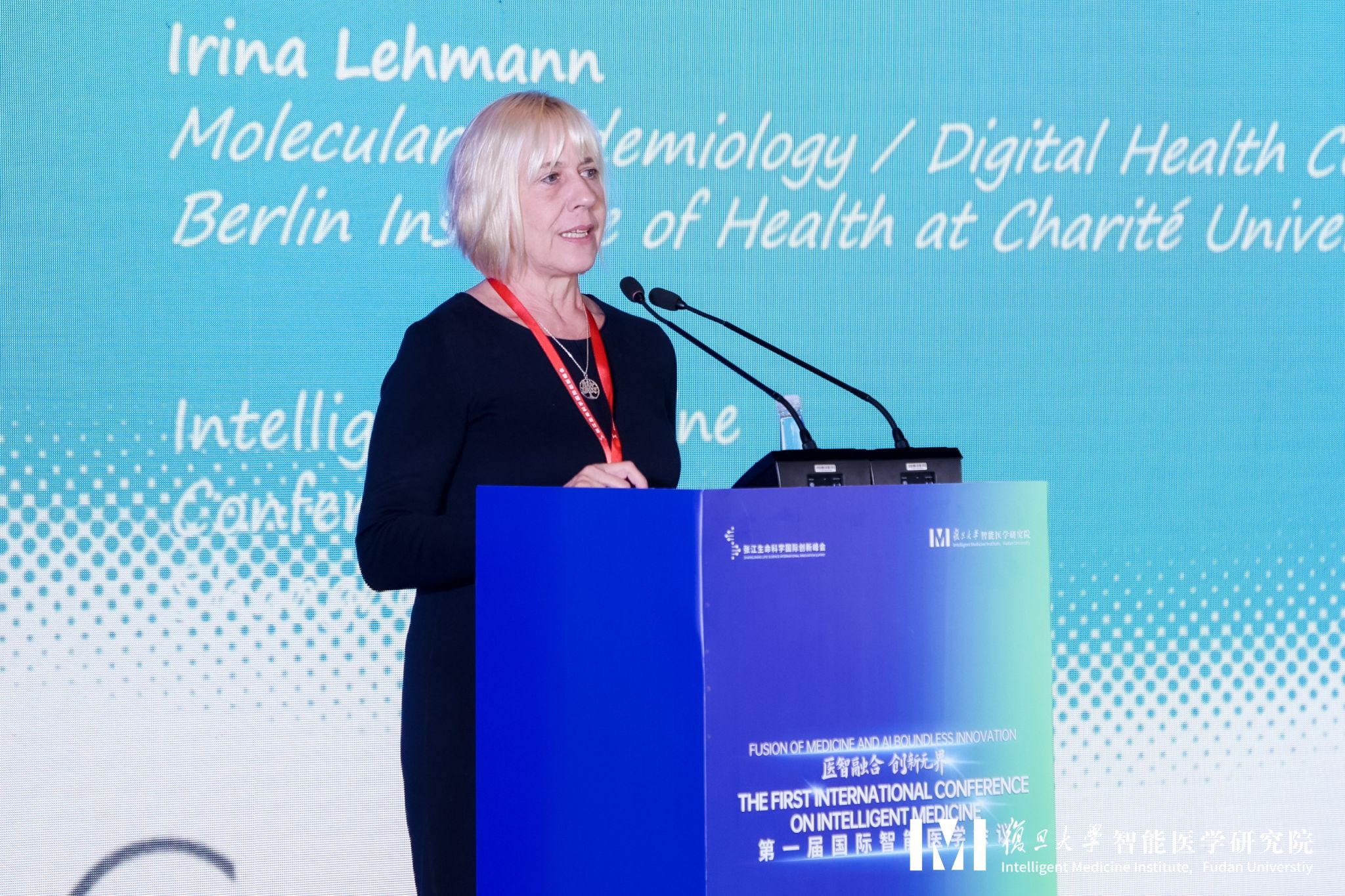
Prof. Irina Lehmann, the head of the Molecular Epidemiology Unit at the Berlin Institute of health at the Charity University Medicine Berlin, presented “Data driven discovery of disease mechanisms”. She discussed how disease mechanisms can be discovered from hypothesis-free and large-scale data analysis from a precision medicine perspective, focusing on the application of single-cell RNA sequencing and the challenges of data analysis in respiratory disease and cystic fibrosis research. She emphasized the challenges of data quality, heterogeneity, and interpretation, and described how analysis of nasal swab samples can advance understanding of the pathophysiology of lung disease. Using techniques such as whole-slide imaging and spatial transcriptomics, she demonstrated how to combine different data sources, including studies of the effect of loss-of-function mutations in the CFTR gene on cystic fibrosis and the effect of triple modulation therapy on patient inflammation and immune responses.
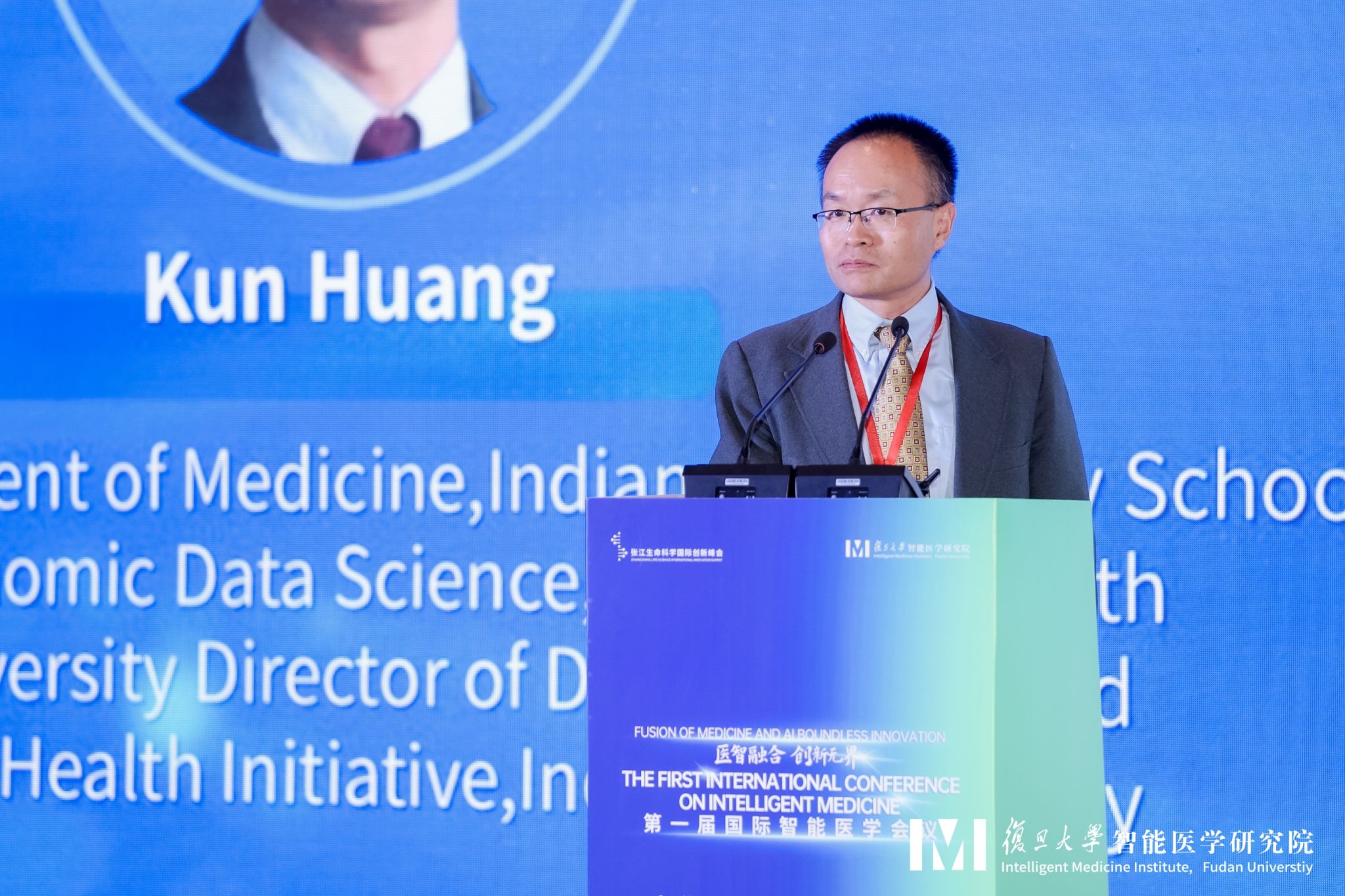
Prof. Kun Huang, the professor of Department of Medicine, Indiana University School of Medicine, discussed the data analysis and application platform based on computational pathology and integrative genomics from the perspective of precision medicine in his report “Computational Pathology and Integrative Genomics for Precision Medicine”. He focused on the application of phenotyping, genomic integration and multimodal data in big data processing, emphasizing the challenges of data quality, heterogeneity and interpretation. He described how to combine different data sources to advance precision medicine, demonstrating the results of the application of multimodal data in research collaboration, innovation and scientific discovery.
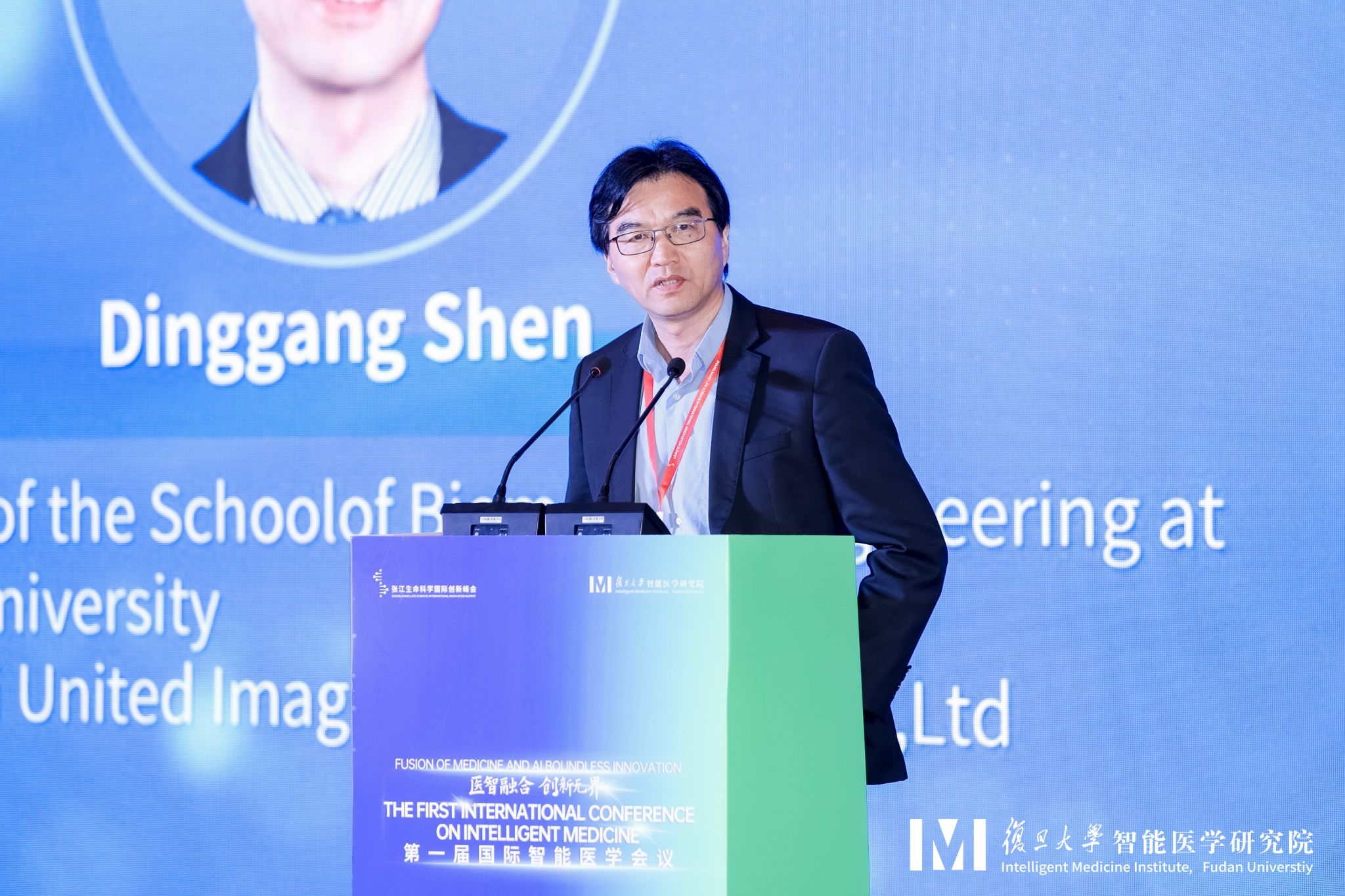
Prof. Dinggang Shen, the funding dean of the School of Biomedical Engineering at Shanghai Technology University, presented “Advancing Clinical Workflows: Full-Spectrum AI from Data Acquisition to Outcome Prediction”. He detailed the use of AI in disease diagnosis and treatment workflows, including lung cancer screening, analysis, and automated report generation, as well as navigation and treatment planning during surgery. He also discussed low-dose AI reconstruction technology, which improves lung nodule detection and reduces CT dose. He also described the use of multi-task, multi-scale V-Net in low-dose chest CT and the deployment of this technology in hospitals.
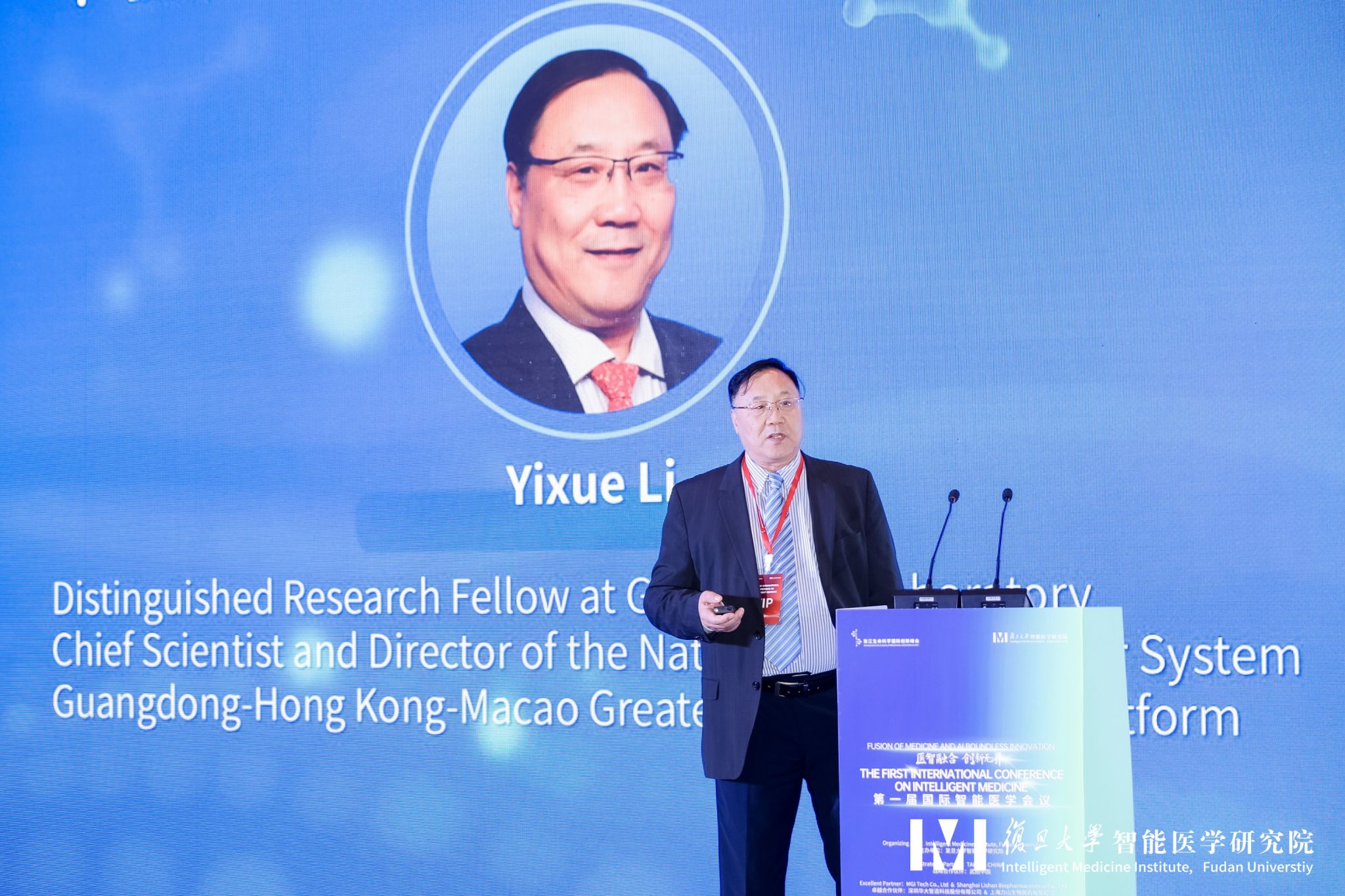
Prof. Yixue Li, Distinguished Research Fellow at Guangzhou Laboratory, discussed how deep learning can be utilized to study the adaptive-genotypic landscape of SARS-CoV-2 and assess its transmission rate with his report “Employing deep learning technology to investigate the fitness-genotype landscape of SARS-CoV-2 and gauge its transmission rates”. He emphasized the importance of fitness in biology, pointing out that realistic biological phenotypes are the result of natural selection and adaptation. He also discussed the relationship between viral evolution and fitness, and how large-scale language modeling brings new challenges and opportunities to the field of biology.
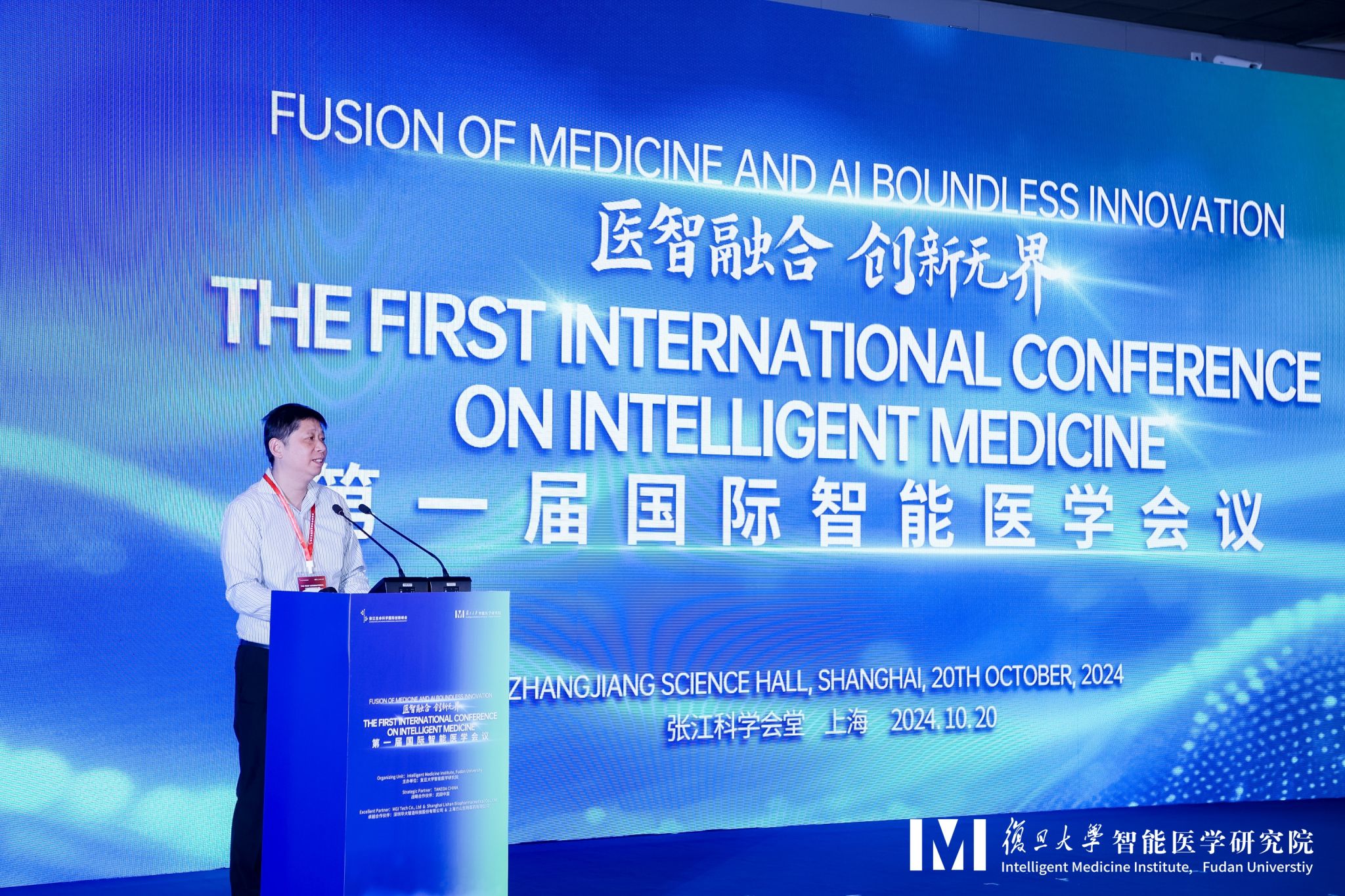
Prof. Hui Lu, the distinguished director of the Department of Bioinformatics and Biostatistics at Shanghai Jiao Tong University, brought a presentation on “Efficient analysis of biomedical data with BMAP platform”. From the perspective of microbiome and big data, he discussed how to utilize the BMAP platform to efficiently analyze biomedical data, focusing on the platform's potential and application in processing large-scale biomedical information. He emphasized the importance of big data analytics in understanding disease mechanisms, drug efficacy, and individualized therapy. Finally, he presented the results of models developed through the BMAP platform to predict disease states and subtypes.
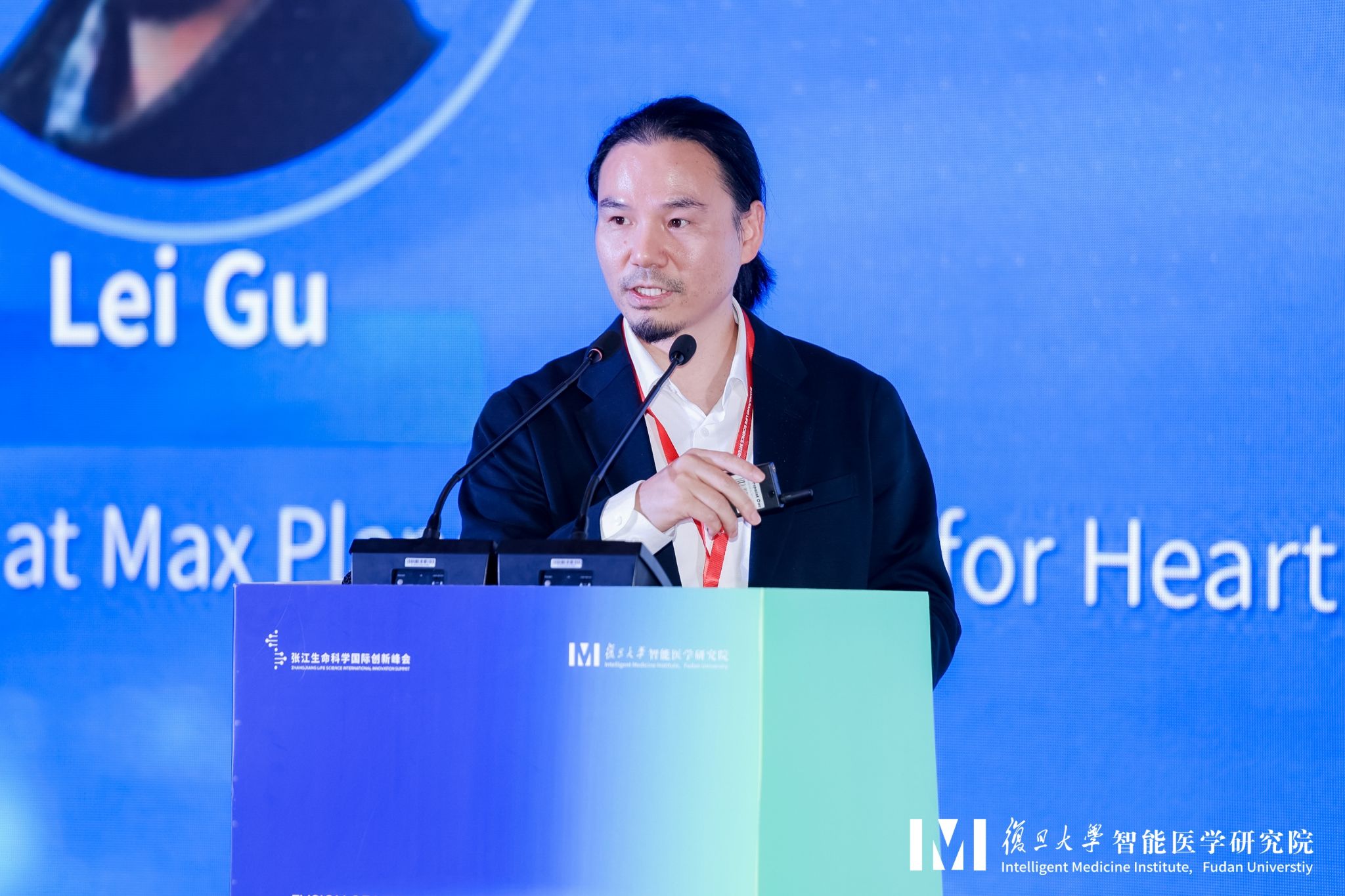
Dr. Lei Gu, the independent group leader at Max Planck Institute for Heart and Lung Research, discussed the construction of data analysis and application platforms based on epigenetics and histone modifications from the perspective of precision aging research in his report “Dynamics of histone modifications in aging”. He focused on how phenotyping, histone modification integration, and the application of multimodal data in big data processing can be used to predict biological age and related health risks. He described how different data sources can be combined to advance precision aging research.
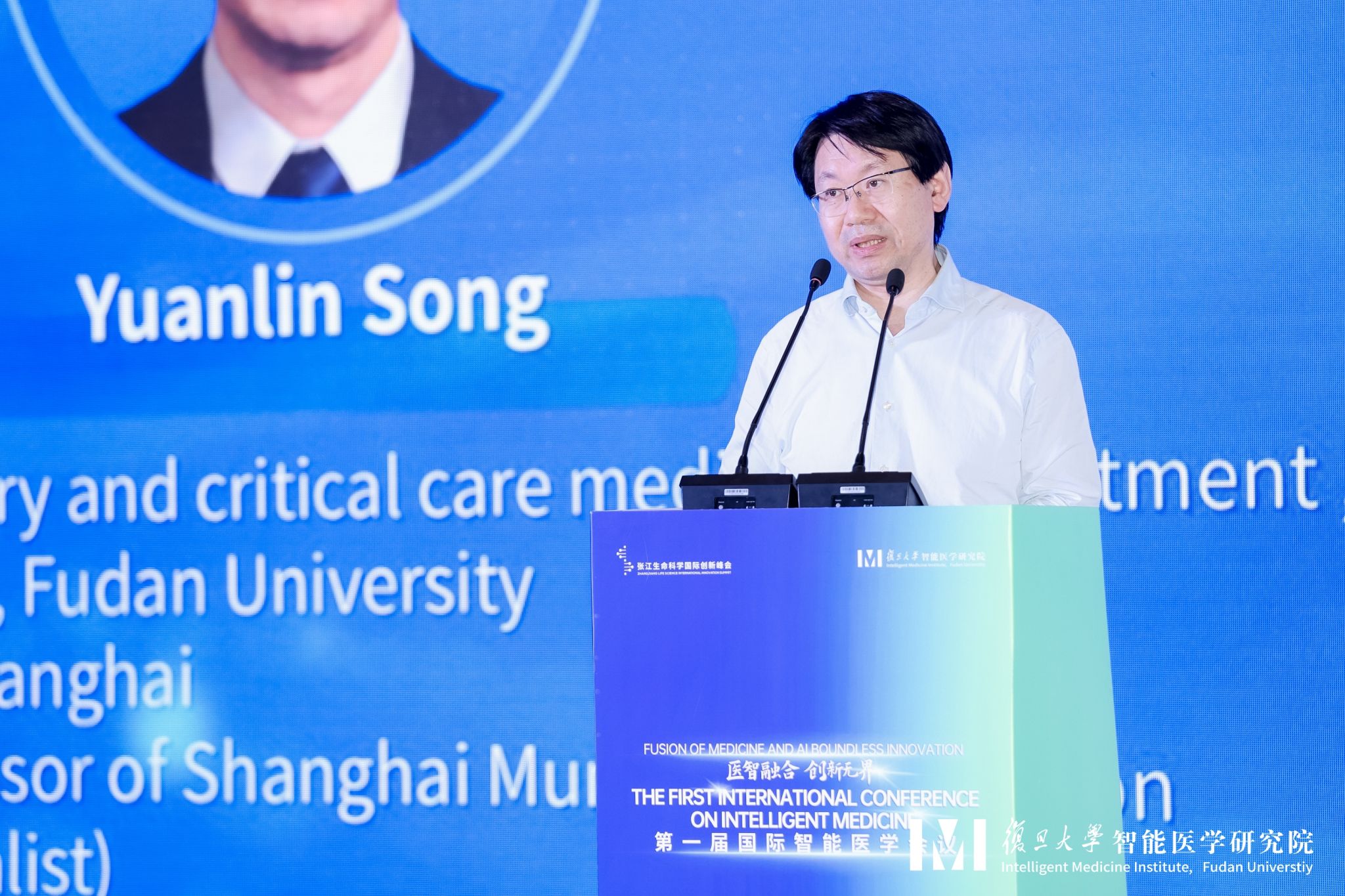
Dr. Yuanlin Song, the director of Pulmonary and Critical Care Medicine Department, Zhongshan Hospital, Fudan University, presented “Diagnosis and treatment of pulmonary nodule”. He discussed the clinical diagnostic challenges of pulmonary nodules, focusing on the high incidence of pulmonary nodules and the different opinions in the diagnostic process. He analyzed the malignancy risk assessment of pulmonary nodules from the perspective of imaging and AI and introduced the use of biomarkers and single cell sequencing in the diagnosis of pulmonary nodules. He showed how these technologies can help physicians make more accurate diagnoses through specific cases and discussed the importance of circulating abnormal cell detection in early lung cancer screening.

Dr. Junlong Zhao, the technical support specialist of MGI Tech Co., Ltd, discussed the integration and analysis of multi-dimensional biomolecular data in biological systems from the perspective of spatiotemporal omics and application in disease research. He focused on the importance of spatiotemporal genomics technology in analyzing disease mechanisms and advancing precision medicine. He introduced the Stereo-seq technology, a spatiotemporal genomics sequencing technology capable of achieving nanometer resolution and centimeter field of view, demonstrating the potential application of this technology in the study of different biological samples and diseases.

Finally, the panel event was moderated by Prof. Roland Eils, the member of the German National Academy of Sciences. The panel invited Prof. Sridhar Mani, the Professor of Medicine, Genetics and Molecular Pharmacology at the Albert Einstein College of Medicine, Prof. Irina Lehmann, the head of the Molecular Epidemiology Unit at the Berlin Institute of health at the Charity University Medicine Berlin, Prof. Kun Huang, the professor of Department of Medicine, Indiana University School of Medicine, and Dr. Yixue Li, Distinguished Research Fellow at Guangzhou Laboratory. The experts had an in-depth discussion on the development of cross-border collaborative research and exchanges in the field of AI healthcare, co-development of new technologies, and sharing of data resources and experiences, and put forward valuable suggestions and outlooks for the promotion of innovation and development of the global healthcare field.
The successful holding of the First International Conference on Intelligent Medicine in Shanghai demonstrated the latest research progress and technology application in the field of global intelligent medicine, provided a global vision and innovative ideas for the development of intelligent medicine in China, laid a solid foundation for strengthening the communication and cooperation in the field of global intelligent medicine, improving the level of healthcare services, and promoting the application and innovation of the domestic intelligent medical technology. This conference builds a high-level communication platform for domestic and foreign academics and industries and provides a valuable opportunity to promote the landing and popularization of intelligent medical technology in China's healthcare system, and further boosts the digital and intelligent transformation of healthcare.